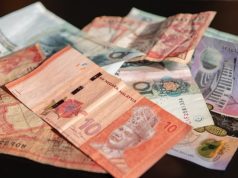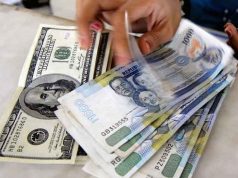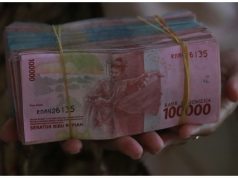
- Taiwan down 8%, worst day since May 2021
- S.Korean shares fall most since onset of pandemic
- MSCI EM Asia equities gauge at three-month low
- Malaysian ringgit at 15-month high
- Indonesia Q2 GDP awaited
Stocks in Taiwan plunged nearly 8% on Monday, underscoring a global sell-off that has spilled over into Asian emerging equities as market participants fear the United States could be heading for a recession.
Investors globally rushed out of risky assets into safer bonds after bleak U.S. economic data triggered worries about whether the U.S. Federal Reserve will be able to engineer a soft landing for the world’s largest economy, and whether it requires more aggressive interest rate cuts to stave off slowdown.
“Markets are worried about recession and think the Fed may now be behind the curve,” MUFG senior currency analyst Lloyd Chan wrote in a client note.
Markets are now wagering a near 70% chance the Fed will not only cut rates in September but ease by 50 basis points. FEDWATCH
MSCI’s broadest gauge of Asia-Pacific equities <.MIAP00000PUS> slumped 3.8% to mark its worst day since late February 2021, while an index of Asian emerging markets equities <.MIMS00000PUS> was at a three-month low.
Taiwan’s benchmark <.TWII> plummeted 7.9% to its lowest since late April, clocking its worst intraday drop since May 2021. Equities in South Korea <.KS11> lost more than 5% in their worst fall since the onset of the COVID-19 pandemic in March 2020.
In Southeast Asia, the Singaporean benchmark <.STI> fell 3.6% to mark its worst day in more than two years, while stocks in Indonesia <.JKSE> and the Philippines <.PSI> lost around 2%.
Currencies in the region leapt higher as the dollar <=USD> weakened on rising bets of deeper rate cuts by the Fed.
The Malaysian ringgit <MYR=> soared 1.5% to its highest since late April last year, while the usually tepid Singapore dollar <SGD=> was last trading at its highest level this year so far.
The Indonesian rupiah <IDR=> advanced 0.4% to a nearly three-week high and seemed to be heading toward 16,000 which it breached in late May. Benchmark 10-year yields <ID10YT=RR> fell as far as 6.788%, the lowest since mid-May.
Investors are awaiting second-quarter Indonesian gross domestic product data due later in the day.
“A potentially weaker Q2 GDP data from Indonesia … could still somewhat weigh on market sentiment,” said MUFG’s Chan.
Elsewhere, the Philippine peso <PHP=> and Thai baht <THB=TH> added around 0.2% each.
HIGHLIGHTS:
** Japan’s Nikkei<.N225> at seven-month low, yen<JPY=EBS> highest since mid-January
** Sidecar trading curb activated on South Korea’s KOSPI market
** U.S. 10-year Treasury note <US10YT=RR> touches more than one-year low
| Asian stock indexes and currencies at 0300 GMT | ||||||
| COUNTRY | FX RIC | FX DAILY % | FX YTD % | INDEX | STOCKS DAILY % | STOCKS YTD % |
| Japan | <JPY=> | +0.94 | -2.83 | <.N225> | -4.63 | 2.34 |
| China | <CNY=CFXS> | +0.39 | -0.63 | <.SSEC> | -0.29 | -2.62 |
| India | <INR=IN> | – | -0.65 | <.NSEI> | – | 13.74 |
| Indonesia | <IDR=> | +0.43 | -4.53 | <.JKSE> | -2.02 | -1.54 |
| Malaysia | <MYR=> | +1.47 | +3.61 | <.KLSE> | -2.53 | 7.95 |
| Philippines | <PHP=> | +0.12 | -4.27 | <.PSI> | -2.13 | 0.22 |
| S.Korea | <KRW=KFTC> | -0.22 | -5.22 | <.KS11> | -5.49 | -4.74 |
| Singapore | <SGD=> | +0.20 | -0.37 | <.STI> | -2.77 | 1.47 |
| Taiwan | <TWD=TP> | +0.36 | -6.01 | <.TWII> | -6.35 | 13.01 |
| Thailand | <THB=TH> | +0.06 | -3.11 | <.SETI> | -1.58 | -8.72 |
—Reporting by Sameer Manekar in Bengaluru; Editing by Christopher Cushing







